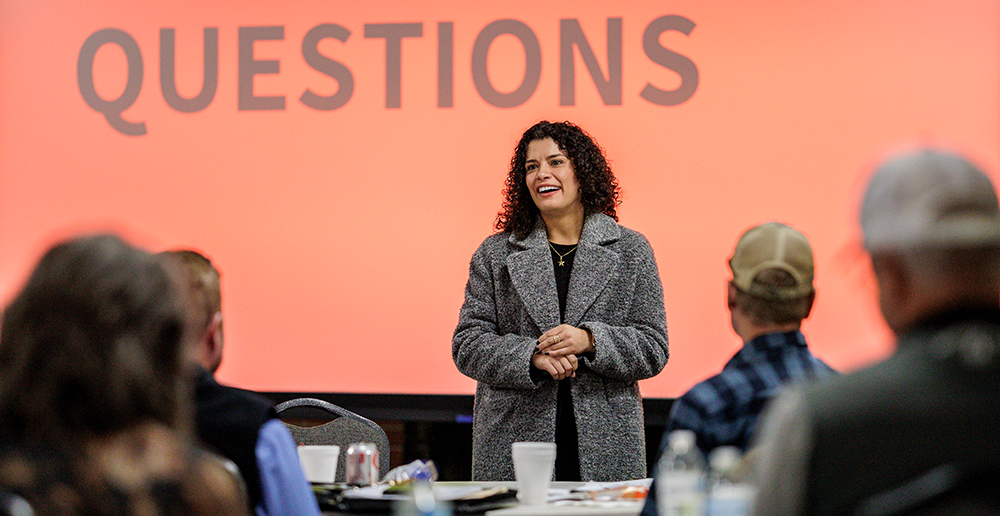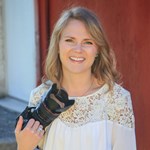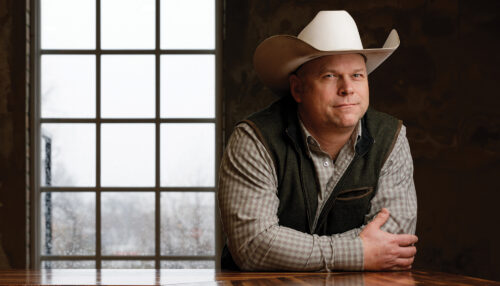Isabella Maciel serves as a Noble Research Institute systems researcher and co-lead of the landmark Metrics, Management, and Monitoring: An Investigation of Pasture and Rangeland Soil Health and its Drivers, also known as the 3M Project.
The five-year, $19 million project has marshaled the research capacity of 11 nonprofit organizations, private research organizations and public universities in the United States and the United Kingdom. This project is gathering data across 60 ranches covering 1.69 million acres of land in Oklahoma, Texas, Michigan, Colorado and Wyoming.
Q: Before co-leading this project for Noble, you had an extensive research career studying many aspects of greenhouse gas emissions in beef production systems. How did you get started in that field of study, and when did you know this was the research you would pursue?
A: For that, I need to go back to Brazil. I was born and raised on my father’s ranch in the southeast of Brazil. When I was a kid, we barely needed to buy anything. We produced most of the food we ate. Between my uncles and my dad, we had rice, beans, meat from pigs, cows, and chicken, fresh eggs, milk, cheese and more.
Since I was little, I knew I wanted to do something related to agriculture and livestock. Vet school was when I got really fascinated with beef cattle, and the possibility of producing sustainable meat. It is important to demonstrate that cattle are not the problem, and there are ways to mitigate their emissions. After coming to the U.S., I studied more about how the soil plays a key role in sequestering carbon and offsetting the emissions from the beef cattle system. It was when I realized that how we manage our ranches can impact society as a whole. Greenhouse gases research not only impacts farmers and ranchers, but all of society. I became deeply fascinated by the idea of contributing to that.
Q: So you went from this intimate, on-the-land knowledge to seeing a much bigger picture, and now, you’re tying the two back together in your research at Noble. What excites you about the 3M Project?
A: What excites me the most about this project is the opportunity to collaborate with 60 producers across the U.S. This project is studying the real-life practices and management on these ranches, and how this impacts soil health, which is incredibly valuable. Each ranch is uniquely diverse, and this project will provide valuable insights into how management practices influence the land. The climate of your location and the management you are doing impact the land.

Q: What kind of innovative methods are you using, and what unique information are you collecting across these ranches?
A: We are gathering hundreds of ecological samples, including soil cores, forage samples, energy flux measurements, and water impact data. In addition to the ecological assessments, the project aims to explore the socio-economic challenges that hinder the adoption of soil-health-focused management practices in cow-calf operations.
It’s easy to set up research to measure the soil outcomes, but when you talk about ranches, you have a real person there, and how they are feeling impacts their decision-making. They are not only asking, ‘Am I profitable?’ or ‘Am I producing meat?’, but, ‘How is my well-being?’ and, ‘Are my kids going to be able to continue this work that I started?’ or, ‘What will happen here after I have passed on?’ These are some of the questions we are exploring. This is a unique aspect of this project.
Q: Who inspires you in your work today?
A: I look to people like my dad who spend their whole lives in agriculture, trying to continue the work they learned from their parents. This is who I look to when I need to get inspiration for this work. When I moved here, I felt bad because I wondered, ‘Why am I not at home helping him?’ And now I feel like by being here, researching, working with all these ranchers, I’m helping him even more. Now I know I’m doing the right thing because I can always think about him and ask, ‘How would we use this information we are generating here to help ranchers like my dad to do better?’



Comment